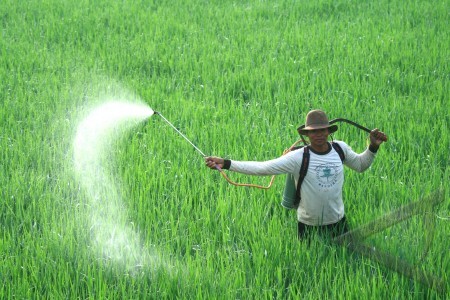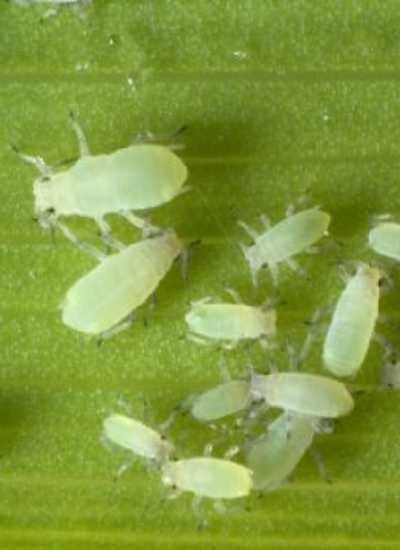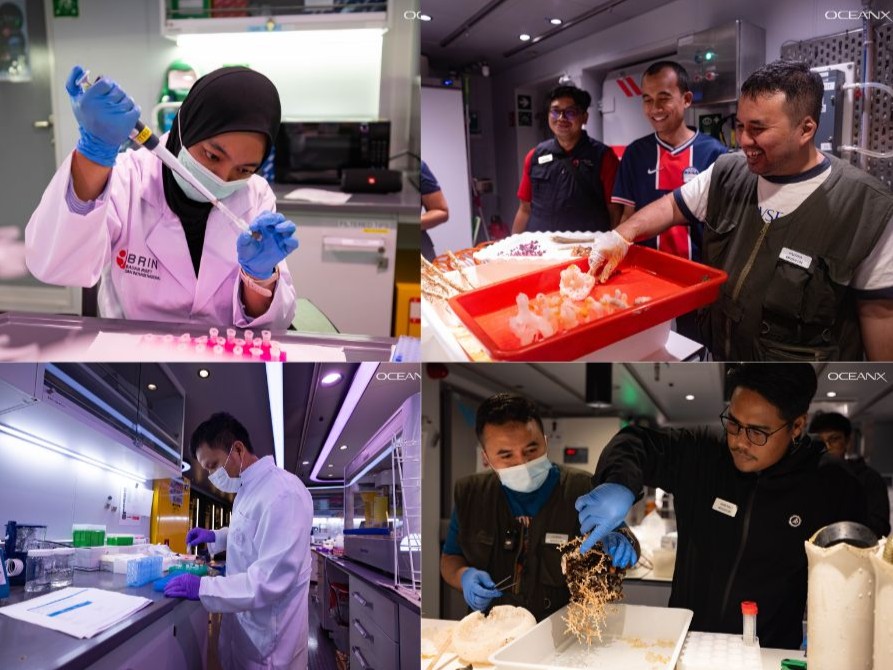Combine Two Biological Control Agents, Lecturer from SITH ITB Develop Effective Biopesticides
By Diviezetha Astrella Thamrin
Editor Diviezetha Astrella Thamrin

 BANDUNG, itb.ac.id - The excessive utilization of chemical insecticides and not in accordance with the rules written today starting to take effect. The number of insects populations that have negative impacts on society is increasing; ranging from insects of agricultural, residential insect, insect barn, to insect disease vectors such as mosquitoes and flies. Excessive use of chemical insecticides has led to chemical insecticide resistance in many insects, and has become a problem that is quite disturbing.
BANDUNG, itb.ac.id - The excessive utilization of chemical insecticides and not in accordance with the rules written today starting to take effect. The number of insects populations that have negative impacts on society is increasing; ranging from insects of agricultural, residential insect, insect barn, to insect disease vectors such as mosquitoes and flies. Excessive use of chemical insecticides has led to chemical insecticide resistance in many insects, and has become a problem that is quite disturbing.
Resistance is a condition that causes the target populations of organisms become resistant to chemical insecticides, and more resistant to chemical insecticide active ingredients. The presence of lead concentration of insecticide resistance is needed to control insect pests will also be larger, so that additional funds are needed anyway. Therefore, the government is trying to reduce the use of chemical insecticides through Integrated Pest Management (IPM).
 Departing from this problem, Dr. Tjandra Anggraeni, a lecturer from the School of Biological Sciences and Technology (SITH) ITB initiates a study to address the problems of insecticide resistance in many insect's chemistry. Together with Dr. Ramadhani as her partner, Tjandra also supporting IPM program to conduct a study of the body's defense system (immune)of insects. In contrast to vertebrates that have antibodies, an effective insect has its own immune system that is located in the blood (hemolimfa).
Departing from this problem, Dr. Tjandra Anggraeni, a lecturer from the School of Biological Sciences and Technology (SITH) ITB initiates a study to address the problems of insecticide resistance in many insect's chemistry. Together with Dr. Ramadhani as her partner, Tjandra also supporting IPM program to conduct a study of the body's defense system (immune)of insects. In contrast to vertebrates that have antibodies, an effective insect has its own immune system that is located in the blood (hemolimfa).
Thorough Insect Immune System
 In this study, Tjandra and Ramadhani using agricultural pest insect larvae Crocidolomia binotalis, a species that is a pest of vegetables, as an object of research. The study was conducted by trying to weaken the immune system of insects by using bioinsektisida derived from the leaves of the plant Mirabilis jalapa. in the other side, microbe Bacillus thuringiensis bacteria and fungi Metarhizium anisopliae used also as bioinsektisida. From these botanical and microbial bioinsektisida, they looked for the most appropriate bioinsektisida concentration based on the speed and amount of insect mortality. The results of this study are expected to be a reference for decision makers regarding the prevention of insect pest-resistant chemical insecticides.
In this study, Tjandra and Ramadhani using agricultural pest insect larvae Crocidolomia binotalis, a species that is a pest of vegetables, as an object of research. The study was conducted by trying to weaken the immune system of insects by using bioinsektisida derived from the leaves of the plant Mirabilis jalapa. in the other side, microbe Bacillus thuringiensis bacteria and fungi Metarhizium anisopliae used also as bioinsektisida. From these botanical and microbial bioinsektisida, they looked for the most appropriate bioinsektisida concentration based on the speed and amount of insect mortality. The results of this study are expected to be a reference for decision makers regarding the prevention of insect pest-resistant chemical insecticides.
The testing of the insect immune system was conducted on the insect immune system cell and humoral immune system. In the insect cellular immune system, researched the number and type of blood cells, as well as the ability of blood cells to surround the particles from the surrounding cytoplasm (phagocytosis). Meanwhile on the humoral immune system, they focused their study on the enzyme concentration called prophenoloksidae and blood clotting ability (agglutination). In insects, this prophenoloksidae enzymes to accelerate the oxidation process of phenol substances.
The testing of living organisms as objects of research is challenging enough for Tjandra. "The insects might die before the test asthe laboratory temperature suddenly changed. This is an external factor that is quite an obstacle in our study," said Tjandra. In addition, the active ingredient of the plant should be standardized biopesticides in advance, so it was necessary to cooperate with researchers from the Chemistry Program.
Combine Two Biological Control Agents
 From this research, Tjandra and Ramadhani found that plant Mirabilis jalapa is potential to be used as a biopesticide. Mirabilis Jalapa also could be used to weaken the immune system in insect agricultural pests. In addition, by combining them with mushroom Metharizium anisopliae, agricultural pest larvae mortality rate increased to 76% after 48 hours with the optimum dose. High mortality of larvae of agricultural pests with a combination of 2 of this biological control agent can be used as biopesticides to combat insect pests that are resistant to chemical insecticides.
From this research, Tjandra and Ramadhani found that plant Mirabilis jalapa is potential to be used as a biopesticide. Mirabilis Jalapa also could be used to weaken the immune system in insect agricultural pests. In addition, by combining them with mushroom Metharizium anisopliae, agricultural pest larvae mortality rate increased to 76% after 48 hours with the optimum dose. High mortality of larvae of agricultural pests with a combination of 2 of this biological control agent can be used as biopesticides to combat insect pests that are resistant to chemical insecticides.
Tjandra confirms that the main principle is to deal with controlling insect pests, not the overall murder. With the use of these two biological control agents, Tjandra hope that IPM, the program of the government can be improved so that farmers would be more prosperous. "Hopefully, with this study, the use of chemical insecticides which is not wise and only causing damage to the environment can be reduced," said Tjandra

.jpg)
.jpg)
.jpg)
.jpg)
.jpg)

